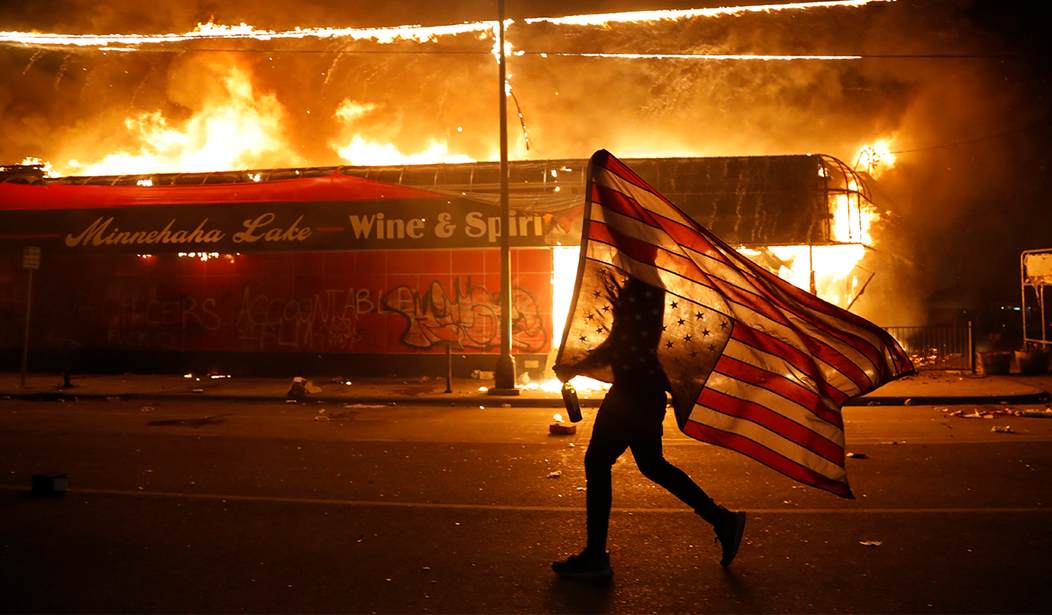Last summer, Minneapolis, Minnesota was the proverbial powder keg igniting. With the death of George Floyd–a death universally decried by all sides of the political spectrum–it seems a fuse had been lit and it exploded all over the country. Riots erupted everywhere and things were…well, you know how things were. You saw it yourself.
Since then, though, Minneapolis hasn’t exactly been a good place to hang out. As Cam noted earlier today, it’s on pace for its most violent year in a generation.
But why?
Well, a study found that the Minneapolis police retreated after Floyd’s death.
Bullets crashed through the walls of Brandy Earthman’s house on Minneapolis’ north side one evening this summer. The shots sheared through the door of the living room where her children were playing. One severed a bone in her 19-year-old son’s arm.
The gunfire was part of a wave of shootings this year in Minneapolis, where killings are on the rise and, Earthman and others complain, the police are frequently nowhere to be seen.
“They don’t care anymore,” she said. “They’re just going to let everybody kill themselves.”
Policing in Minneapolis changed dramatically in the year since a white police officer murdered George Floyd. The video-recorded killing of a defenseless Black man touched off rioting, rekindled a national debate about racial inequities in law enforcement and launched scattershot efforts to strip funding from police. In the months that followed, few cities wrestled more with the question of what the future of American law enforcement should be than Minneapolis. Officials here floated attempts to overhaul, shrink or even abolish the city’s besieged police force – so far with no success.
In the interim, an examination by Reuters found, Minneapolis’ police officers imposed abrupt changes of their own, adopting what amounts to a hands-off approach to everyday lawbreaking in a city where killings have surged to a level not seen in decades.
Almost immediately after Floyd’s death, Reuters found, police officers all but stopped making traffic stops. They approached fewer people they considered suspicious and noticed fewer people who were intoxicated, fighting or involved with drugs, records show. Some in the city, including police officers themselves, say the men and women in blue stepped back after Floyd’s death for fear that any encounter could become the next flashpoint.
“There isn’t a huge appetite for aggressive police work out there, and the risk/reward, certainly, we’re there and we’re sworn to protect and serve, but you also have to protect yourself and your family,” said Scott Gerlicher, a Minneapolis police commander who retired this year. “Nobody in the job or working on the job can blame those officers for being less aggressive.”
To be fair, that’s hardly surprising. Why? Because police were vilified and demonized.
Yes, even by their own city.
As noted above, city officials considered a number of measures up to and including defunding the police and disbanding the department. That was an extreme option, yet for many, it was the only option they would seriously consider.
Meanwhile, people all over the city were screaming about defunding the police and spray painting ACAB (“All cops are bastards”) all over the city, and no one seemed willing to disagree with them. It was made clear that they weren’t wanted.
Now, don’t get me wrong. The Minneapolis Police Department sure did appear to have some issues somewhere up the chain. In addition to Floyd’s killing, there was the 2017 murder of Justine Diamond, a white woman who called the police. While speaking with one officer, his partner–a black man, for the record–pulled his weapon and shot her. He claimed he thought she was going for a weapon.
He was convicted of murder in 2019.
Still, though, you can’t scream bloody murder about how awful police are and how they’re just looking for opportunities to shoot black people, then complain when they pull back on any preemptive action. No one wants to be the one who ends up sparking off the next round of riots.
The problem is that people really think they can go off like the people of Minneapolis did and there not be some kind of reaction by the police. You can’t talk about how you don’t want the police around, then get upset when the police aren’t around.
Yet that seems to be what’s happening.
On the flip side, even though Minneapolis hasn’t done anything formally, we can get a clear glimpse of what would happen if some of the more idiotic anti-police measures had been passed. Minneapolis is still burning, just not as literally, and the people who are best equipped to stop it aren’t going to do so because they’re too concerned about it resulting in more looting and rioting.
If you want to fix Minneapolis’ problems, the first thing the community should do is reach out to police and try to mend those bridges.
Figure the odds of that happening, though.








Join the conversation as a VIP Member